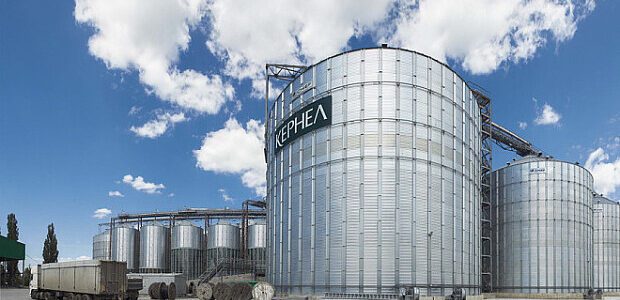
The agro-industrial group Kernel is negotiating with its creditors to defer the repayment of debt obligations that have grown to a record high since the beginning of the Russian military invasion of Ukraine – up to $1.95 billion as of June 30, 2022, which is 37% more than its amount as of the same date in 2021 of the year.
According to a financial report on the holding’s website on Wednesday night, this increase in debt was mainly due to a sharp increase in short-term debt raised to replenish working capital in the winter of 2021-2022 and outstanding by the summer of 2022 due to Russian aggression and related with it negative factors.
According to the group of companies, its net debt obligations by June 30, 2022 increased by 1.8 times compared to the same date last year – to $ 1.49 billion, and the ratio of debt to EBITDA jumped to a record five-year ratio of 6.8x compared to 1.0x in 2021.
“The Russian invasion began just at the peak of our working capital cycle, when we had the highest seasonal debt level of $1.95 billion in the history of the company and an all-time high inventory of $0.9 billion. Fortunately, we entered into this is a turbulent time in a relatively good financial condition, so we continued to service our debt, but we were forced to negotiate a deferral of repayment of the principal debt to creditors,” the holding said in a statement.
Kernel recalled that the first such negotiations allowed it to defer the repayment of the principal amount of the debt until September 30, 2022, and now it is negotiating to extend the delay until June 30, 2023.
“As of the day of this report, we received refusals to extend the maturity of the principal debt in the amount of $627 million with creditors until June 30, 2023. For debt obligations totaling $246 million, we are in the process of issuing such refusals,” the holding emphasized in the report .
Kernel specified that in December 2021 it completed the early redemption of Eurobonds for $213 million, reducing the total amount of Eurobonds maturing in 2022 to $595 million.
“Due to the fact that the group did not have an unconditional right to defer settlements of 12 months or more in relation to its banking services as at June 30, 2022, $198 million of long-term bank loan balances and $595 million of Eurobonds outstanding were reclassified as short-term as of June 30, 2022,” the holding said in a statement.
Also, according to him, by June 30, 2022, Kernel pledged 370,000 government bonds of Ukraine in the amount of $6.08 million as collateral for previously taken short-term loans.
“While we have completed one of the most difficult periods in our history, the prospects for the future remain unclear and will greatly depend on the outcome of the war in Ukraine and the group’s ability to export agricultural products through the Black Sea ports of Ukraine,” the holding stated.
Before the war, Kernel ranked first in the world in the production of sunflower oil (about 7% of world production) and its export (about 12%), and was also the largest producer and seller of bottled sunflower oil in Ukraine. In addition, the company was engaged in the cultivation of other agricultural products and their sale.
The largest co-owner of Kernel through Namsen Ltd. is Ukrainian businessman Andrey Verevsky with a share of 39.3%.